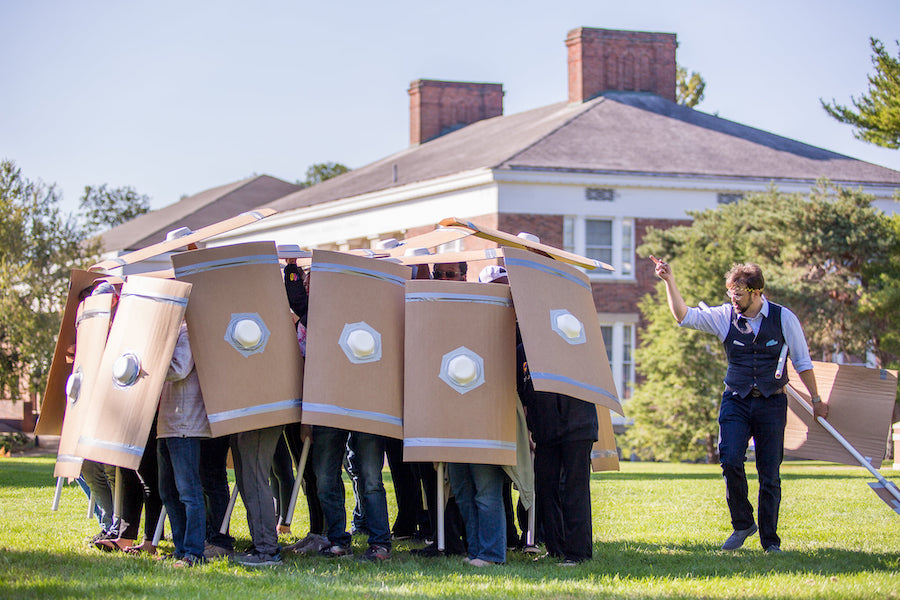MLK Convocation Draws Inspiration From Dr. King’s 1967 Book
Related Programs
Related Posts
Connect With Us
March 3, 2022
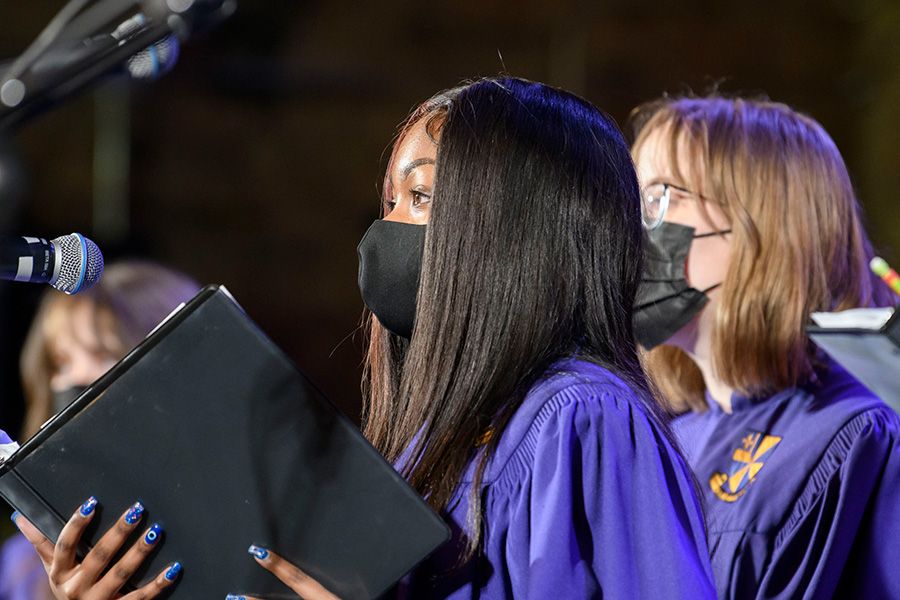
The Briton Singers perform during the 2022 MLK Convocation.
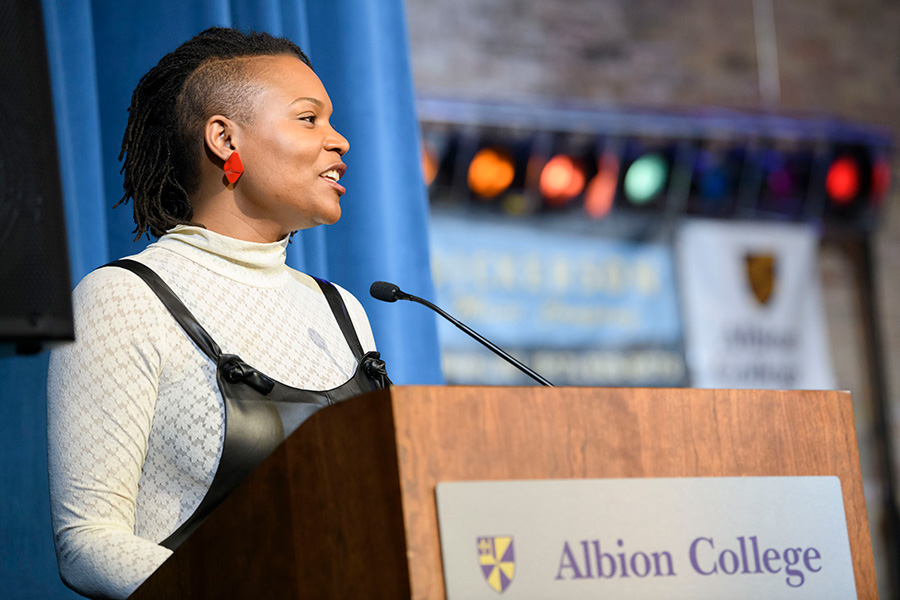
Dr. Ashley Woodson, dean of the School for Public Purpose and Professional Advancement, gave remarks at the beginning and end of the program.
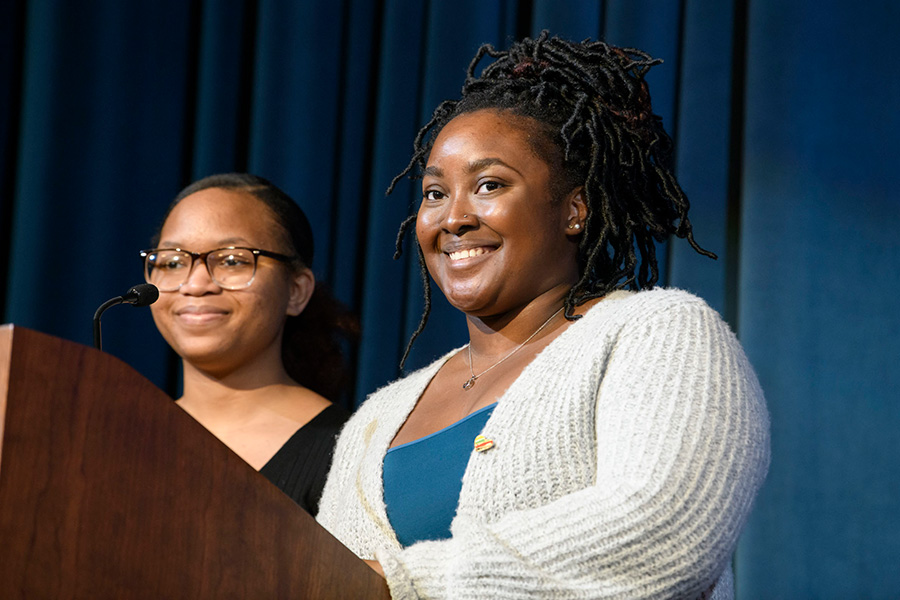
Victory Stovall, '23 (right, at microphone), and Kei'Asianique Hill, '23, read from the writings of Rev. Dr. Martin Luther King, Jr.
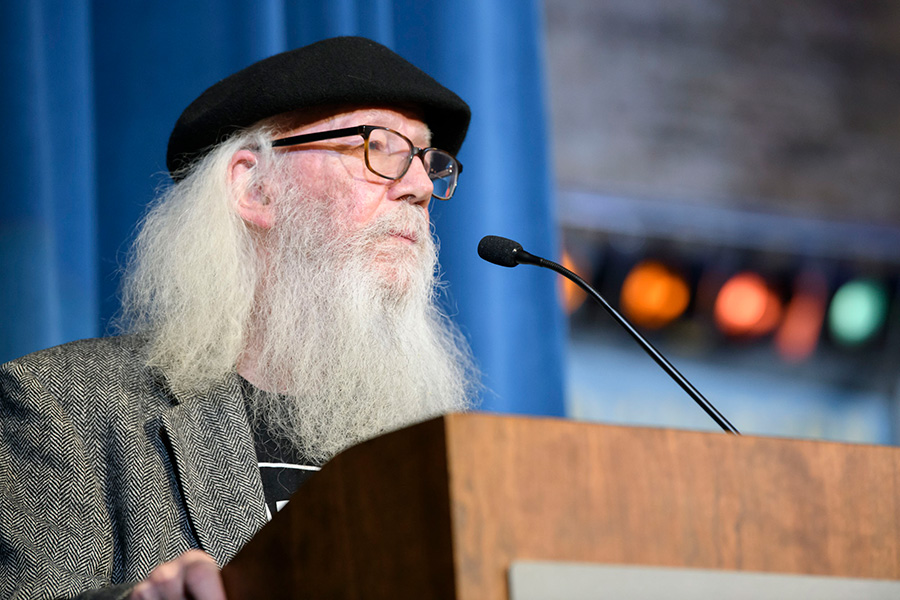
Dr. Wesley Arden Dick, professor of history, emeritus, offered a reflection.
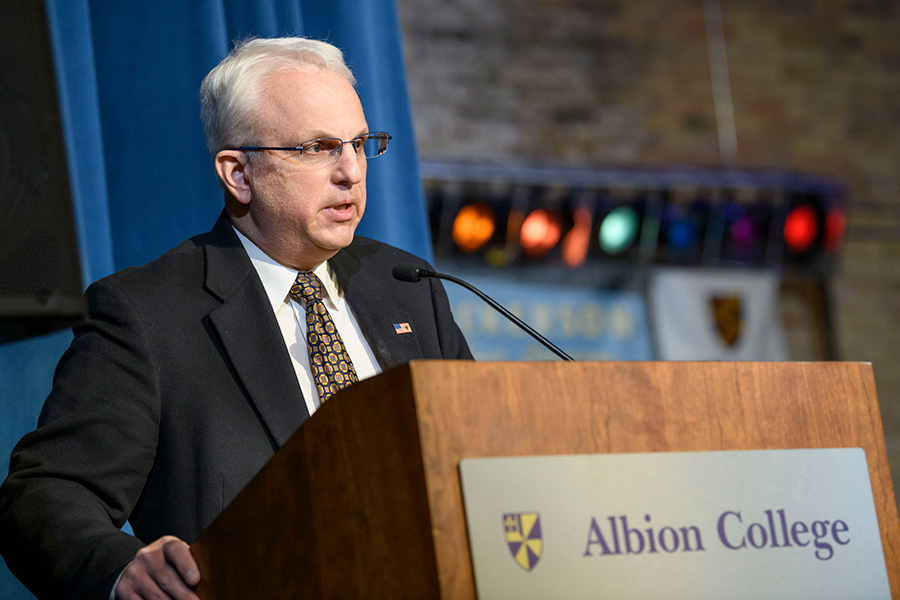
Interim President Joe Calvaruso, '78, offered closing remarks.
Following a pair of postponements—one due to technical issues; the other, a snowstorm—the Albion College and Albion communities came together March 1 at the Bohm Theatre for the annual Rev. Dr. Martin Luther King, Jr. Convocation and Community Celebration. United under the theme of “Let Us Be Dissatisfied” (taken from King’s 1967 book Where Do We Go From Here: Chaos or Community?), the presenters confronted problems in society at large as well as in Albion.
The words below may not sound like they come from an event celebrating King’s legacy. They were, however, spoken by civic and College leaders whose belief in King’s vision—and Albion’s ability to approach it more closely—has been an inspiration in our community. Their dissatisfaction may hold the key to Albion’s better tomorrow.
–Jake Weber
Dr. Ashley Woodson, dean, School for Public Purpose and Professional Advancement
“We are excited about this opportunity to, in some cases, begin and, in other cases, to meaningfully restart conversations about how those who love this College the most can persist toward manifestation of King’s legacy in all that we do. … You may not have the courage you think you need. You may not have the intelligence you think you need. You may not have the eloquence you think you need. Interim moments are in many ways defined by what we do not have. They are marked by uncertainty, but maybe most importantly, they are marked by reflection on all that we’ve invested, all that we still need, and all that—despite our limitations—we’re willing to do to meet and exceed our expectations for one another.”
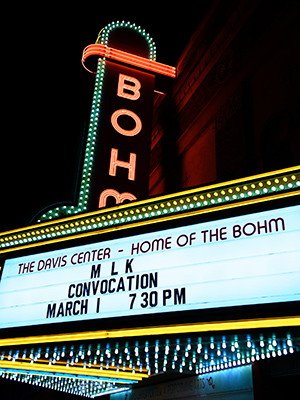
The Bohm Theatre marquee shined brightly on the first night of March.
Albert Amos, senior pastor, Bread of Life Ministries; president, Albion Ministerial Alliance
“Dr. King said that he had a dream, long ago. What’s your dream for the betterment of Albion College? What’s your dream for the movement of the momentum of our city? What’s your dream for yourself and your children? Are we going to continue in a chaotic state or are we going to be mindful to come together as one? Albion, I challenge you to be dissatisfied until unity is applied within our great city.”
Nora Jackson, mayor pro tem of Albion
“King used the word “we,” not “I,” not “me,” not “you.” … Let us be dissatisfied that only once a year we reflect on the life of Dr. King as a moral, spiritual, intelligent leader. It must be our daily mission to find common ground. … We need to be a community where we’re actively and continually breaking down barriers that divide us. Let us be dissatisfied until we get it right.”
Classidy Scales, ’24, president, Albion College Poetry Club
An excerpt from her poem “My Reflection and I Are Dissatisfied”
Our bodies, our ancestral skin are used as metaphors rather than similes.
Change that with the pen that has been blessed in your hand, and the skin envied by many men.
Use it…for change.
And with that, it was gone.
So I asked, with the last breath in my being: Where do we go from here? Where do I go from here?
Prophesying these words it said: You have poetry and prophecy, use it.
Now, put that in your history book.
Dr. Wesley Arden Dick, professor of history, emeritus
“Fortunately for Albion, we have a local hero who has given blood, sweat and tears for voting rights. For years, Albion NAACP President Bob Dunklin has been registering voters in the barbershop, in the projects, at the Festival of the Forks and back-to-school events. He’s gone door to door, and in the middle of the pandemic was driving people to get to the polls. Bob Dunklin’s leadership has inspired others to do the work of democracy here at home. …To honor King’s legacy, with love, let us rise up and rededicate ourselves to taking the actions, including protests, needed to assure that government by the people, for the people, shall not perish from the Earth. If we do that, historians looking back will marvel at how our generation saved democracy from the abyss of tyranny.”
Keena Williams, ’09, chief belonging officer
“I see a community that pretends we are not broken. That pretends we are not hurting. … We pretend that we have achieved the definition of integration, but what we have achieved is only a watered-down version. We have brought people together physically, but in too many cases that is where the work ended. … You may be asking, ‘How can she say these things? Tonight is about hope, it’s about moving forward.’ … But we must first address those things that hold us back … Let us be dissatisfied with the way things have always been, or our desire to go back to the way things were.”
